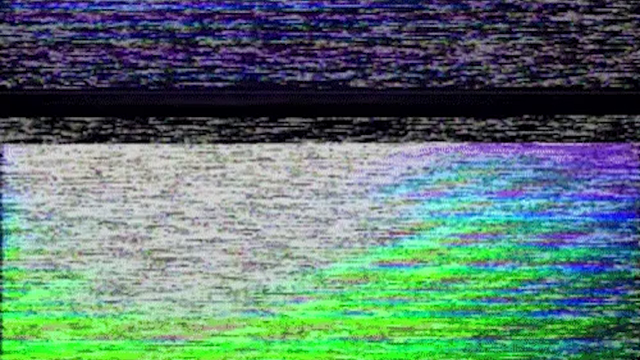Readings, lectures
#Transmitting
With Mahmoud Al-Shaer (28 magazine), Munir Fasheh, Meena Kandasamy, Adania Shibli and others
At this time, the GGG rule (tested-vaccinated-recovered) applies for the event at HKW.
More about Covid-19 admission regulations
In English and Arabic with translation

The past fourteen years of siege imposed on Gaza have not prevented attempts to overcome the effects of isolation and confinement from springing up in hidden cracks and crevices. Among these is 28 magazine, founded in 2013 by a group of young writers, its name taking inspiration from the number of letters in the Arabic alphabet. It responded to a need felt by many artists, writers and others for spaces for their literary and creative practice, which seek new language and new terms that aim to create renewed tools of resistance and modes of engagement with reality. Language, the Arabic alphabet and its twenty-eight letters – and their ability to move freely – have enabled many artists and writers to imaginatively transcend the enclosure and create connections, if only linguistically, with the wider Arabic speaking regions and the rest of the world.
In its endeavor to find a new language and terminology, to create spaces for contemplation and co-operation, and to transcend the constraints imposed on Gaza, 28 magazine has made extensive use of the internet. Digital spaces have become a refuge where especially young people can freely represent themselves and connect with others outside Gaza.
In this edition of the New Alphabet School, 28 magazine will attempt not only to think and discuss through transmitting, but to create spaces to find and consider new languages, new terms and new tools to confront the challenges of reality. The participants will examine practices of literature, art, resistance and freedom that arise out of and draw upon autonomous and collective experience by creating relationships between the past, the present and visions of the future, and between the near and far in Palestine and beyond. They are invited to take part in a semi-utopian endeavor of finding inspiration in the confrontation with the crises of reality and to uncover new realms of interaction, engagement, attention and interest.
Curated by Mahmoud Al-Shaer (28 magazine) in conversation with Ibrahim Hannoon and in cooperation with Adania Shibli
Wednesday, September 1
6.30 pm CEST (Berlin) / 7.30 pm EEST (Rafah)
HKW
Introduction
By Olga Schubert and Adania Shibli
6.45 pm CEST (Berlin) / 7.45 pm EEST (Rafah)
HKW
“Mujaawarah/Neighboring”, “Tahaaduth/Conversing” and “Turba/Soil” as Vision for Living and Learning
Lecture by Munir Fasheh
Learning that had no connection to formal education or academia was the most interesting part of his life, says learning theorist Munir Fasheh. As a result of the 1967 war in Palestine, the lecturer for mathematics and physics started moving away from university teaching and went along the path of learning in harmony with what characterized Arab civilization most: wisdom that stemmed from interaction among various cultures. This wisdom is not transmitted as a body of knowledge but emerges in the social interaction between learners. On a daily basis, Munir Fasheh reflected on what he had done and gone through the day before and made sense out of it. This, for Fasheh, is the meaning of learning which is generally suppressed in academic institutions. Vision, rather than goals and strategies, have been the central guide for him. Words, both as viruses and as healers, formed a main theme in his vision: a vision that he summarizes in a new trinity. In his lecture, Fasheh will present this concept and the three interconnected components: “mujaawarah” (Arabic for the state or act of being a neighbor) as the organic social unit in building community; “wellness” as the governing value not to be violated in action; and “nurturing soils” as the essence of life.
7.15 pm CEST (Berlin) / 8.15 pm EEST (Rafah)
HKW
Palestine on My Mind: “Thaaimann/Motherland”, “Thaaimozhi/Mother-Tongue” and “Thanmaanam/Self-Respect”
Lecture by Meena Kandasamy
It would appear that there are not many reasons for Tamils in India to think about Palestine. But perhaps the 1980s struggle for a separate homeland of Tamil Eelam in Sri Lanka brought to fore the inspirational example of the Palestinian struggle. In her lecture, Meena Kandasamy will explore how many Tamils hark back to exploited, colonized, oppressed places in the world whenever they face oppression. Kandasamy’s thesis is, that what happened to Palestine is what will happen to Tamils in India. She does not see it as a warning alone, but also as the seed for the necessity of struggle and in that sense, an unspoken solidarity.
In her lecture, the activist, poet, novelist and translator will talk about some of the pressing issues that India, and especially the state of Tamil Nadu, faces today under a nationalist, Hindu majoritarian rightwing government. She will look at parallels between the situation of Tamils in India and Palestinians when it comes to language, injustice in the allocation of jobs and land, the struggle against stealth settler colonialism and resistance. What does happen when we think of Palestine?
7.45 pm CEST (Berlin) / 8.45 pm EEST (Rafah)
28 magazine gallery (Rafah)
Lectures, presentations and music
By Rana Batrawi, Mahmoud Al-Shaer, Maree Bashir, Majdal Nateel, Shareef Sarhan, Muhammad Zohud and others
8.45 pm CEST (Berlin) / 9.45 pm EEST (Rafah)
HKW & 28 magazine gallery (Rafah)
Discussion
With Mahmoud Al-Shaer, Maree Bashir, Munir Fasheh, Meena Kandasamy, Adania Shibli and others